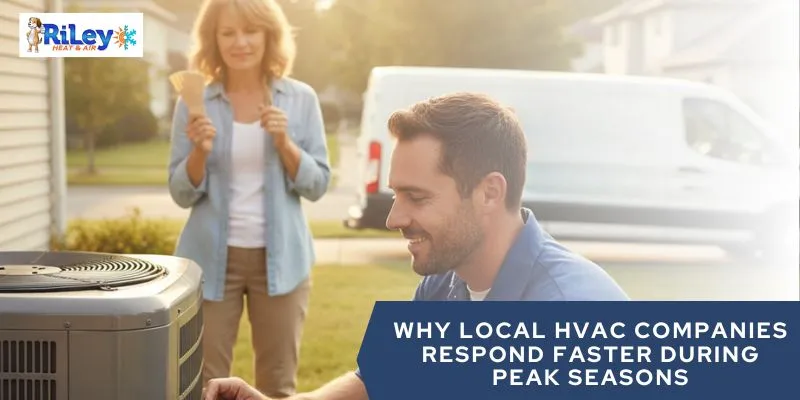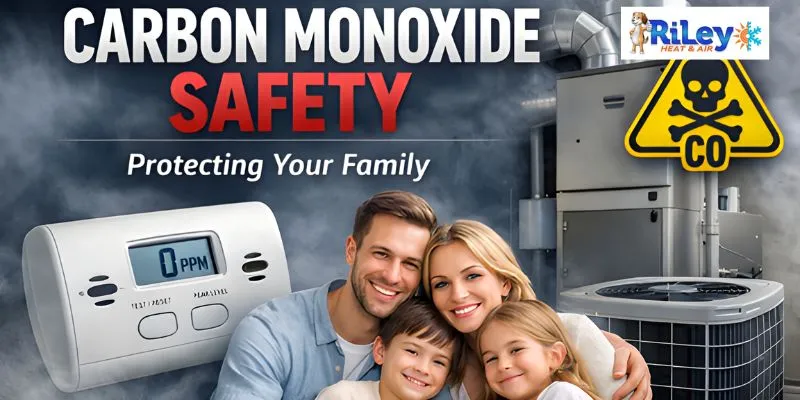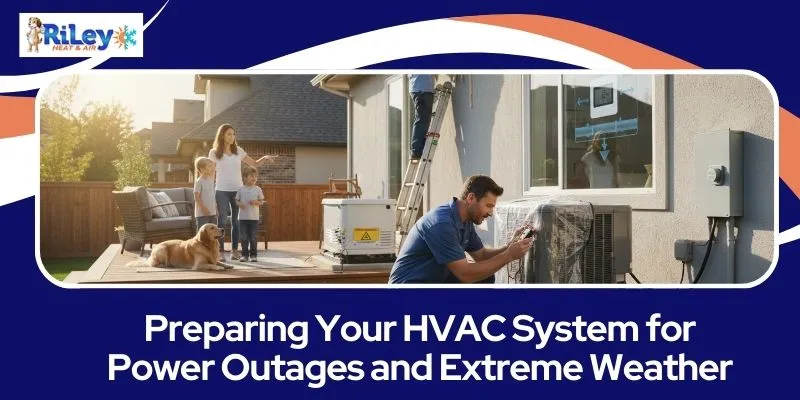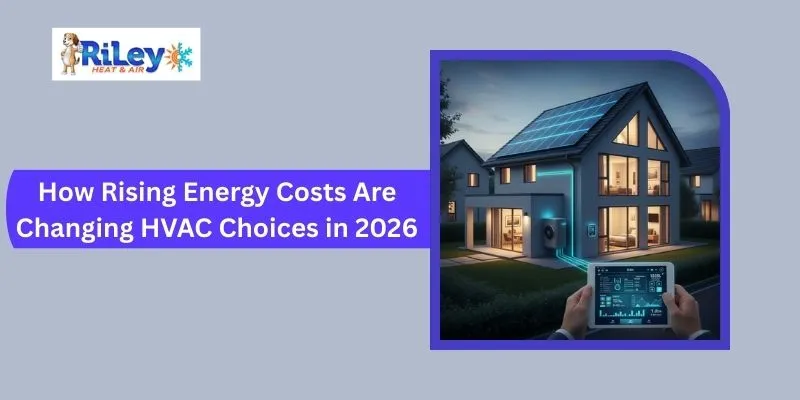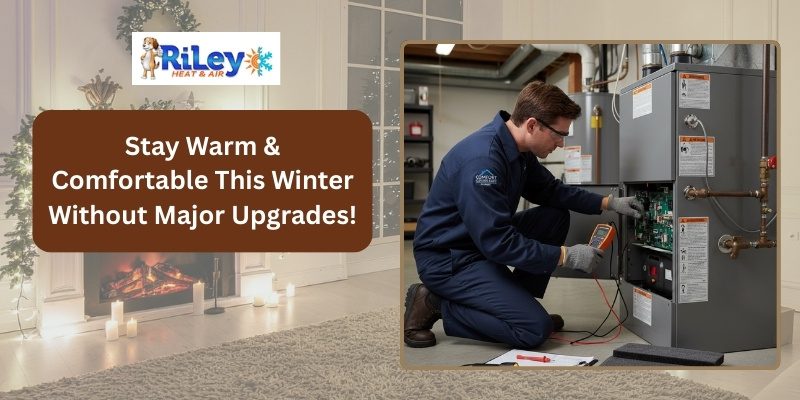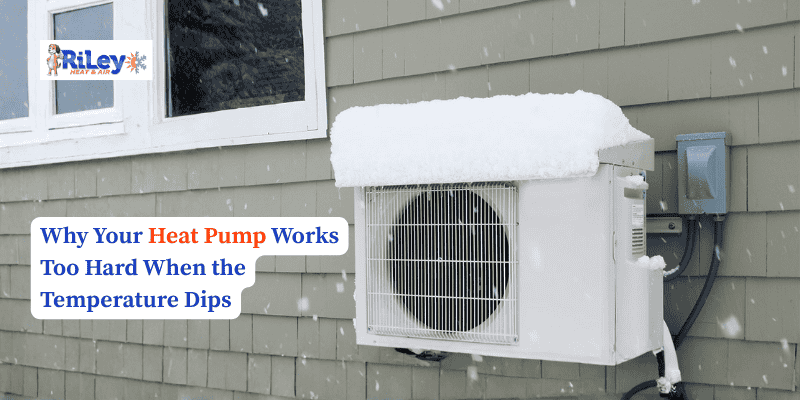
Why Your Heat Pump Works Too Hard When the Temperature Dips — And What to Do About It
During cold weather, most residential homeowners have their heating system operating continuously. Although contemporary systems are designed to be resilient, even the best type of system drops a bit of performance in temperatures that are well below zero degrees Celsius. Being aware of the change in the efficiency of the heat pump during cold weather, knowing when to act and when to avoid such situations, may help prevent energy wastage, expensive maintenance, and unnecessary issues.
Why Heat Pumps Struggle in Cold Weather
Heat pumps do not generate heat like furnaces, but rather transfer it. In winter, it would take the heat energy outside and move it in. The colder the air, the more difficult it is to find some usable heat. During cold weather when the outside temperatures are below 40°F, the efficiency of heat pumps starts to decrease.
At temperatures below freezing, the system is forced to strain significantly to maintain warmth, which typically requires the use of auxiliary heat - an automatic backup heating system that utilizes electric resistance heating. Although it is effective, this feature burns a lot more electricity, and it can easily increase energy costs.
In case the temperature drops far below freezing, your heat pump running continuously below the temperature threshold does not mean that it is malfunctioning; it is just adapting to the decrease in heat in the air.
Common Reasons for Overworked Heat Pumps in Winter
Although lower temperatures are the natural cause of a heat pump strain, mechanical or operational problems tend to exacerbate the situation. The common type of issues that relates to performance in winters include:
- Low Refrigerant Levels: Refrigerant helps with heat exchange. When levels are low, it cannot absorb enough heat, causing the system to run longer and harder. This is a common winter heat pump troubleshooting issue that requires professional help from experts.
- Dirty or Clogged Filters: Clogged air filters decrease the efficiency and extend the running time. The filtering is done after every 1-3 months, based on the use and the situation inside the home.
- Poor Insulation or Air Leaks: Even the most efficient system will not be able to make up for an improperly sealed home. The warm air is lost, and cold air is gained, and your heat pump works too hard to keep the house cool.
- Faulty Thermostat or Sensor Settings: Incorrectly set thermostat settings may lead to unnecessary cycling of your system. Checking optimum heat pump settings in winter, 68 to 72°F, is a good practice to avoid overstraining.
- Outdoor Unit Blockages: The Outdoor condenser may be blocked by snow, ice, or debris around it. This causes the system to work with lower capacity, increasing wear and tear.
Optimizing Heat Pump Efficiency in Cold Weather
To improve your winter heat pump, you do not have to make huge upgrades. It can be seen that even a simple set of adjustments and professional care can result in a significant difference in comfort and cost.
1. Maintain a Consistent Thermostat Setting
Unnecessary auxiliary heating may be caused by frequent thermostat changes. Rather, keep the house temperature constant and prevent extreme overnight fluctuations. Smart thermostats are suitable for maximizing efficiency.2. Keep Outdoor Units Clear
Check that you have cleared your outdoor unit of snow, leaves, or ice. Have a minimum of two feet around the unit to ensure good airflow.3. Replace Air Filters Regularly
Clean filters will also make your system work less and your air flow better, which will be directly related to the efficiency of your HVAC system.4. Schedule Professional Heating Maintenance
Heating service in Maryland should be performed on an annual or biannual basis to ensure everything functions properly. Professionals perform a pressure check of refrigerant, electrical system tests, coils inspection, and defrost cycle effectiveness.5. Seal and Insulate Your Home
One of the most economical methods of avoiding overworking of your system is insulation upgrades. Pay attention to attics, crawl spaces, as well as windows or doors.6. Upgrade Outdated Equipment
The old systems (10 years and above) do not have the high-tech defrost and inverter systems that are present in the new high-performance models. This can be enhanced by upgrading to a more efficient cold-weather model, which can enhance the cold-weather performance by 30.When to Call for Professional Help
Most of the time, the inability to turn on or even the inefficiency of heat sources has more than just cold weather to blame. Call a certified HVAC technician when:
- With the heating mode, the system blows cold air.
- Auxiliary heat is on at all times.
- Unusual increase in electric bills.
- The outdoor unit becomes frozen very often.
Best Heat Pump Settings for Winter Efficiency
The comfort and cost directly depend on the settings of your thermostat. In colder weather, it is suggested that specialists use:
- Adjust the thermostat to 68-72 °F. This is a compromise between comfort and efficiency.
- Do not use emergency heat unless instructed. This completely avoids the use of a heat pump and instead relies solely on expensive electric resistance heating.
- Install programmable thermostats. They are temperature stable and minimize auxiliaries.
Following these optimum heat pump programmes in winter could result in up to 10 percent saving of energy compared to frequent manual adjustments, in which the homeowner manipulates the heat pump.
Conclusion
When the weather becomes colder, your heat pump may work harder, but it does not always mean it is failing; it may simply be a natural response to the cold weather. Nevertheless, potential hidden problems can be indicated by the efficiency loss, continuous work, or extended use of auxiliary heat.
Consistent maintenance, clean filters, and professional servicing ensure your system performs optimally at all times during the winter season, maximizing heat pump efficiency. With a properly maintained heat pump, it is not only your home that will be warm, but also your energy bill will be under control. For your heat pump system to function well, you should schedule an appointment with Riley Heat & Air.
Tags :


